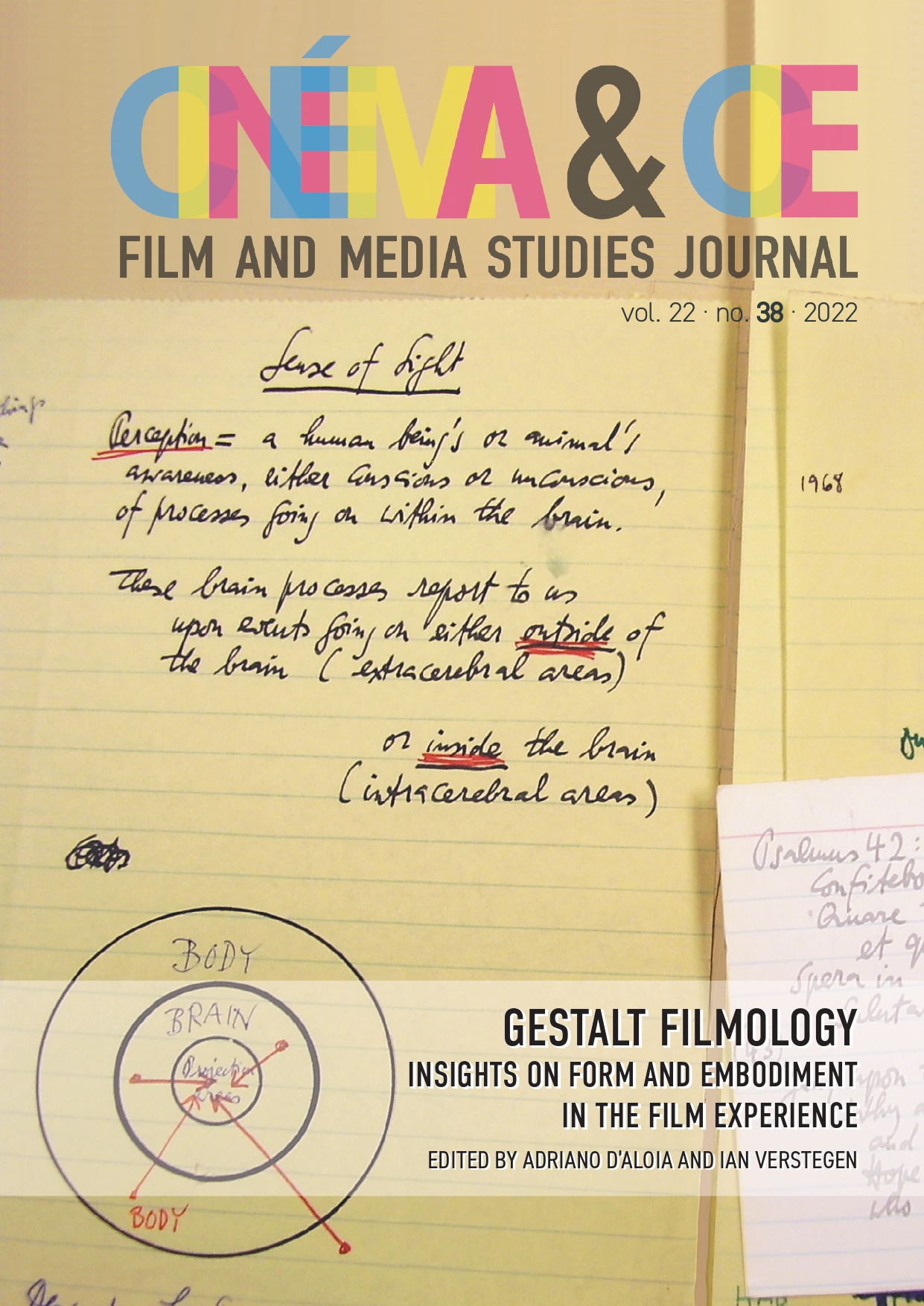Paul Fraisse’s Psychology of Rhythm: A Case for Filmology?
DOI:
https://doi.org/10.54103/2036-461X/17202Keywords:
Paul Fraisse, Gestalt, Rhythm, Filmology, Sound studiesAbstract
My contribution aims to discuss the topic of rhythm as presented by the classic psychologist and filmologist, Paul Fraisse (1911-1994) in his founding studies, to understand its scope, and to consider the possible inheritance to be spent in contemporary research on film. I will first outline Fraisse’s contribution to the psychology of rhythm, a model grounded both on the value of Gestalt organisation and on related dimensions of sensory-motor activation. Secondly, I will investigate contemporary thinking in this field, showing on the one hand how Fraisse’s contribution still helps the psychology of music in defining rhythmic listening experiences, and on the other how the French scholar’s multilayered notion of time perception finds legitimation in neuroscientific research on timing. Finally, I will delve into film theory. In particular, I will put forward the assumption that the sense of rhythm, due to its values of Gestalt organisation, plays a fundamental role in narrative and event-based viewing, enhancing it; yet, due to the dimensions of sensory-motor activation, sound rhythms, in particular, can induce both bodily and neural entrainment and constitute in film an auditive analogon of those embodied and enactive visual processes recognised by the most recent neurofilmological approaches.
Downloads
Downloads
Published
How to Cite
Issue
Section
License
Copyright (c) 2022 Massimo Locatelli

This work is licensed under a Creative Commons Attribution 4.0 International License.





